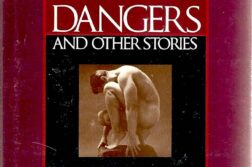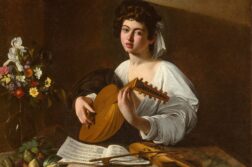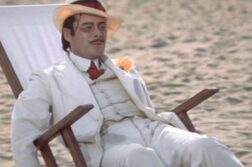LARGER THAN LIFE, the statue of John Betjeman (1906–1984) in the newly renovated St. Pancras International Station in London serves as a reminder of the late Poet Laureate’s love of rail travel. But its proximity to the Victorian Midland Grand Hotel has an added poignancy, for the hotel’s dining room was the scene of one of Oscar Wilde’s public humiliations. Decades after that incident, what A. N. Wilson would describe as Betjeman’s “lifelong hatred of the society which sent Oscar Wilde to prison” led to an unlikely friendship and would inspire one of his best poems.
In the mid-1890’s the Marquess of Queensbury (“the screaming scarlet Marquess,” as Wilde called him) was hounding the playwright around London, threatening hotel managers and headwaiters with a brawl if his son, Lord Alfred Douglas, was ever found with Wilde on their premises.







Discussion1 Comment
I don’t believe John Benjamin was gay,, but regardless of this he was a loveable character and seemed a very mystical person.
When I was 16 years old in 1962 I met him in Cornwall near Polzeath , when I accidentally trespassed into his garden. He invited me to tea at his home, but my parents who were ignorant as to whom he was, prevented me from keeping that appointment. with Mr. Betjemin and this deeply upset me because I had promised to tell him how I had enjoyed his book called ” Summoned by Bells ” This was a great disappointment to me !